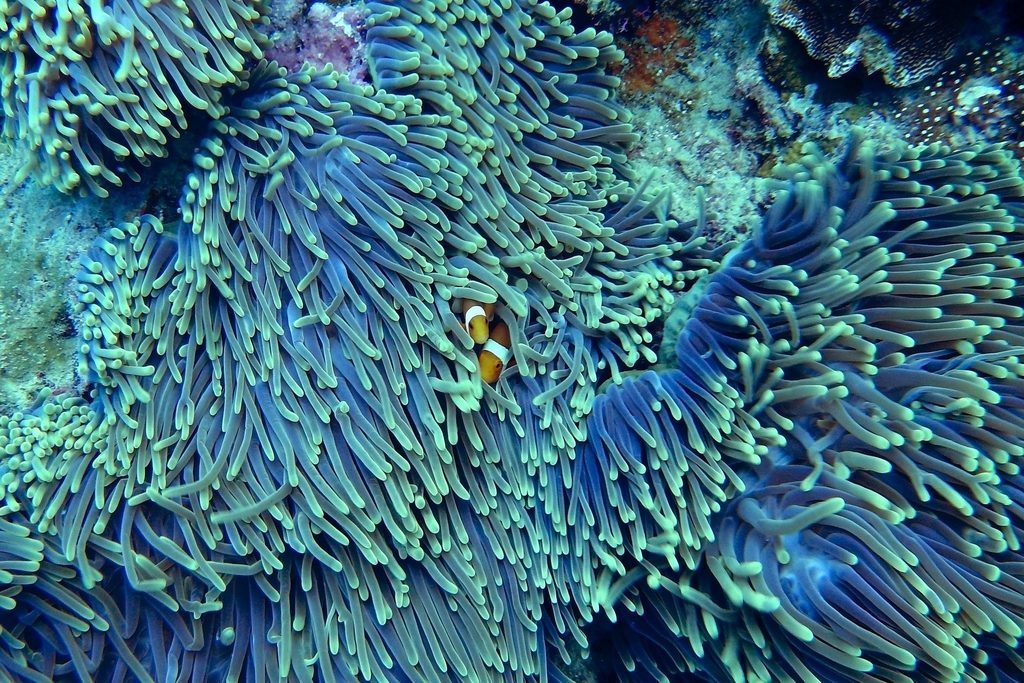A group of scientists are using toy Lego pieces as part of reef restoration efforts in Singapore.
In the wake of increasing concerns over the depletion of coral reefs around the world, scientists have resorted to using Lego blocks to solve the dire issue, the BBC reported.
A group of scientists from the National University of Singapore launched a new experiment aimed at preserving coral reefs using the popular children’s toy, tackling issues like land reclamation and coastal development.
The experimental move, deemed the first of its kind, is being conducted in Singapore which has “almost a third of the world’s species diversity,” said scientist Jani.
So how does it work?
Bits of coral that have already become loose are broken up into pieces then attached to Lego blocks. In doing so, small coral pieces are able to grow into larger colonies.
Asked about the reason behind using Legos, Jani said this was due to it being modular and scalable.
“So if you wanted to work with larger pieces of coral, we just need to stick on more Lego or more building blocks. If we wanted to work with smaller corals then we can use a smaller Lego piece,” she explained.
The vertical farming method also helps create space.
“Vertical farming for corals is not a new concept as well. It’s just that we’ve now taken the modularity of the building blocks and the vertical farming concept and putting it together. Stringing them down to maximise space in our aquarium.”
The bizarre experiment is currently being used for research experiments at the St John’s Island National Marine Lab, BBC News reported.
In the Arabian Gulf, natural coral reefs are among the most affected.
According to Qatar Marine, coral reefs occupy only 0.7% of the ocean ground, “but provide homes and vital nursery grounds for 25% of all marine species on the planet.”
It also “support 4,000 species of fish, 700 species of coral, and thousands of plants and animals.”
Research Assistant Professor at Qatar University Pedro Range warned damage to coral reefs caused by global warming, overfishing and pollution could potentially cause a 30% decline in fish catch potential in Qatari waters by the end of the century.
This has prompted a response from Qatari authorities who have taken action in recent years to, at least, slow down the depletion of marine life.
Earlier this month, several marine activists organised an underwater clean-up drive to raise awareness on the dangers of plastic pollution in Qatar, collecting over 960kg of waste.
Read also: Activists collect 960kg of waste underwater to save Qatar’s marine life
The global movement was initiated by a registered nonprofit organisation working with volunteer scuba divers who protect the ocean. Their focus is to implement lasting change in two core areas: shark conservation and marine litter.
Despite this, a more long term and sustainable plan is urgently needed to ensure the protection of coral reefs in Qatar and the world.
“Coral reefs are home to one of every four marine species and are vital to maintaining the biological diversity of ocean ecosystems. These ecosystems are the oldest most productive on earth: they have been existing for over 200 million years,” Qatar Marine notes.
“On top of their environmental importance, coral reefs are extremely important to local economies, tourism, human health, fishing industries, and much more,” it said in a statement.
“Yet these vast resources are suffering severe destructive loss at an alarming rate. By conservative estimates, approximately 25% of the world’s coral reefs are already destroyed,” it added.







